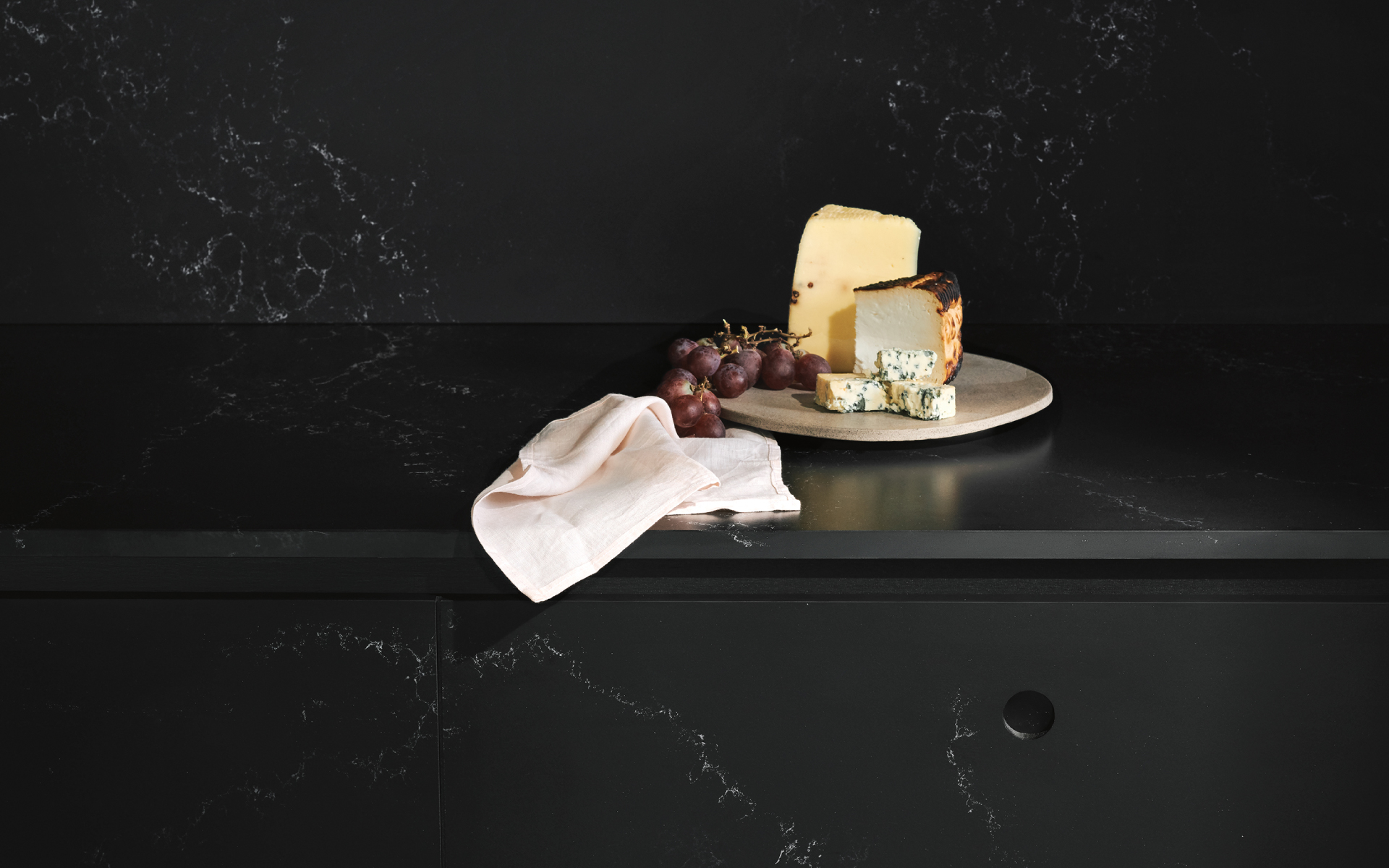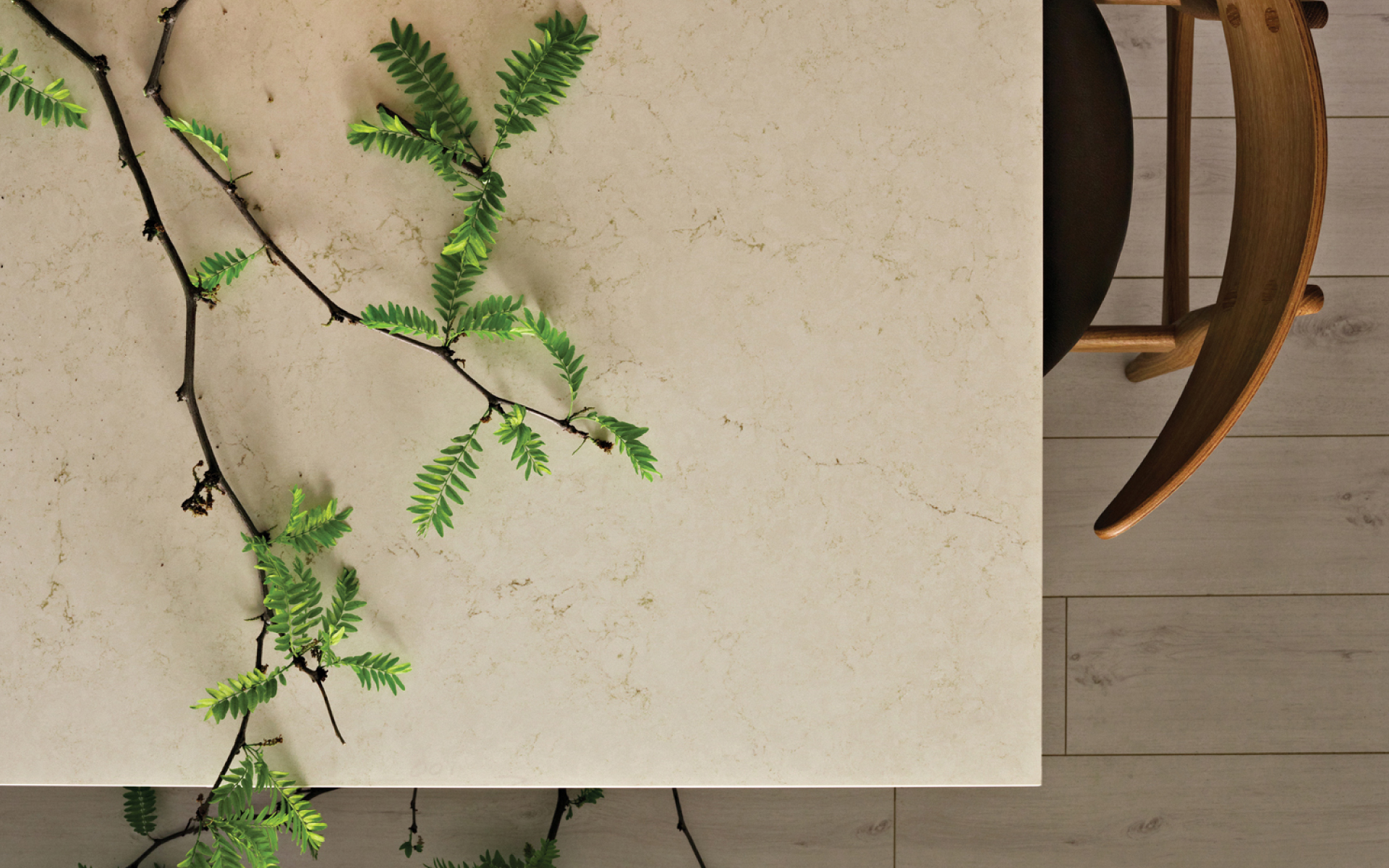Quartz Surface - an Alternative to Natural Stone. Comparison of Characteristics and Properties
Referenssit
Discover the rising popularity of quartz surface in modern architecture and interior design, with a particular focus on kitchens. This exceptional material combines the beauty of natural stone with advanced production technologies, making it an increasingly favoured choice over traditional options like marble and granite. In this article, we will compare the characteristics of both materials, enabling our customers to make conscious decisions when creating their own spaces!
Understanding Quartz Surface and Natural Stone
To begin, let's clarify the fundamental difference between quartz surface and natural stone—their origins. As the name suggests, natural stone is sourced directly from nature, formed over extensive geological processes that result in distinctive patterns and structures on its surface. Granite, marble, and quartzite are examples of natural stones extracted from natural rock deposits.
On the other hand, quartz surface is an engineered material, often referred to as an artificial stone. It is created by combining natural quartz aggregate, polyester or acrylic resin, and pigments. Through innovative production techniques, quartz surface possesses characteristics that allow it to rival and even surpass the qualities of natural stones. In terms of physical and mechanical characteristics, as well as appearance, quartz surface closely resembles its natural counterpart.

Characteristics of Quartz Surface and Natural Stone
When it comes to interior design, many individuals wonder if quartz surface truly offers a good alternative to a natural stone. In reality, both materials excel in interior arrangements and offer extensive versatility. Whether it's quartz surface, luxurious marble, or timeless granite, these materials find their place in kitchens and bathrooms, particularly in the creation of stunning and durable countertops. As an increasingly popular alternative to natural stone, quartz surface showcases numerous advantages that outshine traditional stone properties. Now that we understand their shared design and applications, let's explore distinctive qualities that set quartz surface apart from natural stone.
Source of origin
The most significant distinction lies in the origin of the materials. Natural stone occurs naturally in the environment, while quartz surface is a human-made synthetic product.
Physical characteristics
Natural stone exhibits a wide range of colours, designs, and textures due to the minerals that comprise it. Each natural stone slab is unique, as no two samples are alike. In contrast, quartz surface replicates the appearance of natural stone while offering greater uniformity and consistency in colour due to controlled production processes.
Hardness and durability
Natural stone, such as granite or marble, is renowned for its exceptional durability. However, quartz surface, composed of 93-95% natural quartz and resin, is equally impressive. With its remarkable hardness, second only to corundum, topaz, and diamond, quartz surface surpasses even natural granite in strength.
Resistance to wear
The hardness of materials directly impacts their resistance to wear, abrasion, and scratches. Both quartz surface and natural stone countertops exhibit similar characteristics in terms of wear resistance, making them suitable choices for kitchen countertops.
Resistance to bending
Another notable characteristic shared by both quartz surface and natural stones is their resistance to bending, also known as flexural strength. In this aspect, it could be considered a tie between the materials. While certain types of natural stone may possess slightly higher strength compared to quartz surface, countertops made from either material would be an excellent choice for kitchens or bathrooms.
Heat resistance
Natural stone is renowned for its heat resistance, allowing hot dishes to be placed directly on its surface without risk of damage. Quartz surface countertops are also heat resistant but may be more vulnerable. It is advisable to use special heat resistant pads to protect the surface.
Resistance to stains and chemicals
Quartz surface has a non-porous structure, unlike natural stones like marble. This means quartz surface does not absorb moisture, liquids, stains, or dirt, making it more hygienic and resistant to bacterial growth. Additionally, its smooth surface prevents chemical penetration, making it an excellent choice for kitchen countertops.
Maintenance
Quartz surface requires less maintenance compared to natural stone. While natural stone requires regular cleaning and sealing to prevent moisture and stains, quartz surface's non-porous structure eliminates the need for such maintenance. Daily care can be done using dishwashing liquid and a soft cloth, while mild detergents can be used for tougher stains without compromising the material's condition.
Design options
Both natural stone and quartz surface offer a wide range of designs and colours, making them ideal for enhancing interior aesthetics. With advanced production technology, quartz surface can replicate intricate patterns and captivating designs. Additionally, quartz surface is readily available, making planning and implementing projects more accessible compared to some rare and hard-to-access natural stone types.
Price
Quartz surface is generally more affordable than natural stone, making it a cost-effective option. While quartz surface countertops are cheaper, they still offer comparable characteristics to their natural stone counterparts.

Quartz Surface vs. Natural Stone: Summary
Both quartz surface and natural stone have their strengths and limitations. The choice between these materials ultimately depends on individual preferences, expectations, and budget. Both materials offer versatility and are suitable for kitchen and bathroom countertops, window sills, stairs, and floors. With their durability and resistance to wear, both options ensure longevity in your home. While there is no definitive answer as to which material is better, quartz surface undoubtedly stands as an excellent alternative to natural stone.
Discover Quartz Surface Countertops at Architype
When selecting the ideal countertop material for your kitchen, Architype offers a diverse range of quartz surfaces. Explore various types from renowned global brands like Caesarstone and Avant Quartz. Our products match the quality of natural stone while striking the perfect balance between price and value. Visit Architype and find your dream kitchen surface material!

